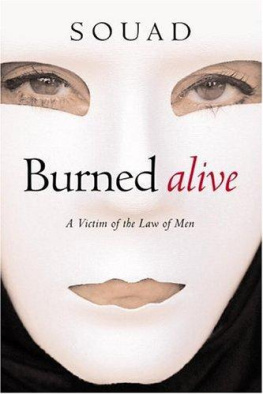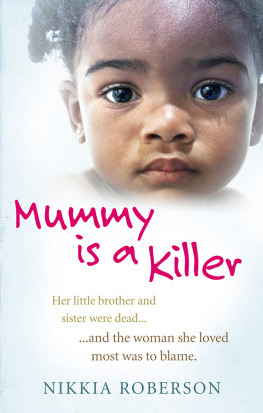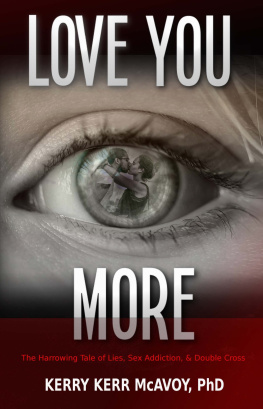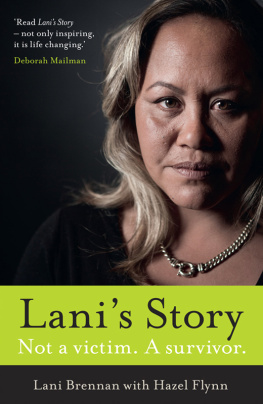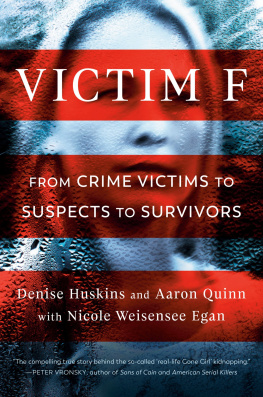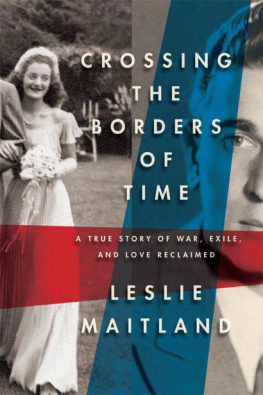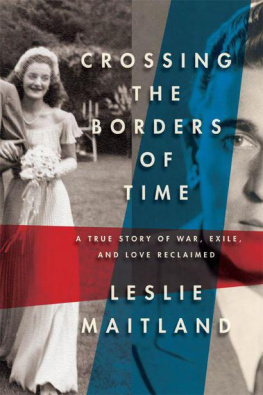
I am a girl. A girl must walk fast, head down, as if counting the number of steps shes taking. She may never stray from her path or look up, for if a man were to catch her eye, the whole village would label her a charmuta. If a married neighbor woman, or an old woman, or just anybody were to see her out without her mother or her older sister, without her sheep, her bundle of hay, or her load of figs, they would right away say charmuta. A girl must be married before she can raise her eyes and look straight ahead, or go into a shop, or pluck her eyebrows and wear jewelry. My mother was married at fourteen. If a girl is still unmarried by that age, the village begins to make fun of her. But a girl must wait her turn in the family to be married. The oldest daughter first, then the others.
There are too many girls in my fathers house, four of marrying age. There are also two half sisters, born of our fathers second wife, who are still children. The one male child of the family, the son who is adored by all, is our brother Assad, who was born in glory among all these daughters. He is the fourth born. I am the third.
Adnan, my father, is not happy with my mother, Leila, for giving him all these girls. He is unhappy, too, with his other wife, Aicha, who also has given him nothing but girls. Noura, the oldest daughter, was married late when I myself was about fifteen. Nobody has yet asked for Kainat, the second girl, who is about a year older than me. I did overhear that a man spoke to my father about me, but he was told that I must wait for Kainats marriage before I can marry. But Kainat may not be pretty enough, and is probably too slow at her work. Im not really sure why she hasnt been asked for, but if she stays unmarried, shell be the butt of the village jokes, and so will I.
It is a curse in my village to be born a girl. I have no memory of having played games or having fun as a child. The only freedom a girl can dream about is marriage, leaving your fathers house for your husbands and not coming back, even if youre beaten. It is considered shameful for a married daughter to return home because she is not supposed to ask for protection outside her husbands house. If she does return to her fathers house, it is her familys duty to bring her back to her husband. My sister was beaten by her husband and she brought shame on our family when she came back home to complain.
She is lucky to have a husband, though. I dream about it. Ever since I heard that a man spoke to my father about me, I have been consumed by impatience and curiosity. I know he lives three or four steps from us. Sometimes I can catch sight of him from the upper terrace where I lay the laundry out to dry. He must have a good job in the city because he never dresses like a laborer. He always wears a suit, carries a briefcase, and has a car. Id like to see his face close up but Im afraid the family will catch me spying. So when I go to get hay for a sick sheep in the stable, I walk fast hoping to see him nearby. But he parks his car too far away. From watching, I know about what time he comes out to go to work. So at seven oclock in the morning, I pretend to be folding the laundry on the terrace or looking for a ripe fig or shaking out the carpets to get a glimpse of him driving off in his car. I have to be quick so I wont be noticed. What I do is climb the stairs and pass through the rooms to get to the terrace. There I energetically shake a rug and look over the cement wall, just slightly glancing to the right. If somebody notices me from afar, they wont guess that Im looking down at the street.
When I see him, I realize I am in love with this man and this car! I imagine many things on the terrace: I am married to him and, like today, I watch the car go off into the distance until I cant see it anymore. But hell come back from work at sunset and I will remove his shoes, and on my knees I will wash his feet as my mother does for my father. I will bring him his tea, and Ill watch him smoke his long pipe, seated like a king in front of the door of his house. I will be a woman who has a husband!
And maybe Ill even be able to put on makeup, get into this car with my husband, and even go into town and into the shops. I will endure the worst for the simple freedom of being able to go through this doorway to go out and buy bread! But I will not ever be a charmuta. I will not look at other men. I will continue to walk fast, erect and proud, but will not watch my steps with lowered eyes, and the village will not be able to say bad things about me, because I will be a married woman.
It is from this very terrace that my terrible story began. I was already older than my older sister was on the day of her wedding. I must have been eighteen, or maybe more, I dont know, and I both hoped and I despaired. My memory went up in smoke the day the flames engulfed me, but I have tried to reconstruct what happened.
I was born in a tiny village that, Im told, was somewhere in the West Bank. But since I never went to school, I dont know anything about my countrys history. I have also been told that I was born there in either 1957 or 1958, so Im about forty-five years old today. Twenty-five years ago, I spoke only Arabic; Id never been farther than a few kilometers beyond the last house on the dirt road. I knew there were cities farther away but I never saw them. I did not know if the earth was round or flat, and I had no idea of the world in general. What I did know was that we had to hate the Jews who had taken our land; my father called them pigs. We were forbidden to go near them, to speak or come in contact with them for fear of becoming a pig like them.
I had to say my prayers at least twice a day. I recited them like my mother and sisters, but I only learned of the Koran in Europe many years later. My only brother, treated like the king of the house, went to school, but the girls did not. As Ive mentioned, where I come from, being born a girl was a curse. A wife must first produce a son, at least one, and if she gives birth to only girls, she is mocked. Two or three girls at most are needed for the housework, to work on the land, and see to the animals. If more girls are born, it is a great misfortune and they should be gotten rid of as soon as possible. I lived this way until about the age of seventeen without knowing anything except that I was valued less than an animal because I was a girl.
So, this was my first life, as an Arab woman in the West Bank. It lasted twenty years, and the person I had been there died. She is no more.
My second life began in Europe at the end of the 1970s in an international airport. I was not much more than suffering human flesh on a stretcher. My body smelled so much of death that the passengers on the plane that was taking me from Palestine to Europe protested. Even though I was hidden behind a curtain, my presence was unbearable to them. As I write about it now, I relive that moment: They tell me that I am going to live but I do not believe that and I wait for death. I even beg for it to take me. Death seems preferable to this suffering and humiliation. There is almost nothing left of my body so why would they want to keep me alive when I dont wish to exist anymore, either my body or my mind?
I still think about that today. It is true that I would have preferred to die rather than face this second life that they were so generously offering me. But, in my case, to have survived is a miracle. It allows me now to bear witness in the name of all those women who have not had this opportunity, and who keep dying for this one reason, that they are women.
I had to learn French by listening to people speak and by forcing myself to repeat the words they explained to me with signs: Bad? Not bad? Eat? Sleep? Walk? I answered by making signs of yes or no. Much later I learned to read words in a newspaper, patiently day after day. In the beginning I could only decipher short announcements, death notices, or brief sentences with a few words that I would repeat phonetically. Sometimes I felt like an animal that was being taught to communicate as a human. In my head, in Arabic, I asked myself where I was, in what country, and why I hadnt died in my village. I was ashamed to be still alive, although no one knew this. I was afraid of this life but no one understood.
Next page
